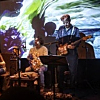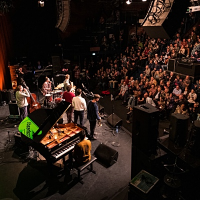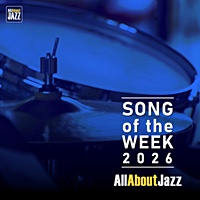Home » Search Center » Results: Hot Lips Page
Results for "Hot Lips Page"
Results for pages tagged "Hot Lips Page"...
Hot Lips Page

Born:
Known as a scorching soloist and powerful vocalist, Oran “Hot Lips” Page was one of the Midwest's top trumpet players. Oran Thadeus Page was born in Dallas, Texas, on January 27, 1908. Page's mother, a schoolteacher and musician, taught him the basics of music when he was a child. By the age of twelve he could play the clarinet, saxophone, and trumpet. He joined a local youth band, led by drummer Lux Alexander, which played at local venues around Dallas. Page attended Corsicana High School and Texas College (in Tyler), and worked for a time in the oilfields. He began his professional touring career when he joined "Ma" Rainey's band in the 1920s
Remembering Dan Morgenstern

by Sanford Josephson
This article previously appeared in Jersey Jazz Magazine. In 1938 when Dan Morgenstern was eight years old, he and his mother fled Nazi-controlled Austria for Copenhagen. Nine years later, they arrived in New York, and Morgenstern was not interested in seeing the Statute of Liberty or the Empire State Building. He just wanted to ...
Out to Lunch Tribute, Nancy Wilson, Ella Fitzgerald

by David Brown
This week we celebrate the recording anniversary of Eric Dolphy's Out to Lunch. We'll pay tribute by playing tracks from the LP as recorded by Vandermark 5, Orchestre National De Jazz, James Newton, The Lounge Lizards and Eric Dolphy himself. A vocal set will follow featuring big band era vocalists Antia O'Day, Helen Humes and Ella ...
Thelonious Monk: An Alternative Top Ten Albums Of Deep And Staggering Genius

by Chris May
Thelonious Monk's position in cultural history grows in stature with each passing year and every new generation. Lionised by jazz fans and a continuing influence on musicians, Monk in 2020 is also held to be a hero by the hip hop movement. While his music no longer has the power to shock that it once possessed, ...
A Garland of Red

by C. Michael Bailey
Like pianist Wynton Kelly and Kelly's debut recording New Faces -New Sounds (Blue Note, 1951), William McKinley Red Garland performed for years as a sideman before releasing his first recording as a leader, A Garland of Red. Originally from Dallas, Texas, Garland migrated to New York City after a stint with Hot Lips Page in 1946. ...
The Archive of Contemporary Music

by Karl Ackermann
In Lower Manhattan, sits a musical gold mine. It's the motherlode of recorded music though the small, brightly colored sign above a grey steel door provides only a cryptic clue. The dusty window display of rare 78 RPM records, broken into erratic pie charts serves as a vestige of the past and a cautionary tale about ...
The Very Singular Mr. Ran Blake

by Duncan Heining
There have been few American composers and musicians, with the ability to encapsulate their country's music in all its racial and ethnic complexity. We might perhaps point to Aaron Copland, Leonard Bernstein, Charles Ives and perhaps, in their own distaff ways, Harry Partch and Steve Reich. In jazz, their number is fewer still--Duke Ellington and George ...
Rick Lawn: The Evolution of Big Band Sounds in America

by Victor L. Schermer
From the latter part of the Jazz Age through the Swing Era, big bands dominated the jazz scene and a large part of the entertainment industry. After World War II, their fortunes declined, but their music soared to new heights, spurred on by innovative leaders, instrumentalists, and very importantly, the composers/arrangers who worked behind the scenes ...
Chet Baker’s Singing: A Cultural Shift

by S.G Provizer
We think of the 1950's as a time of relative social conformity, but in fact, there were significant cultural shifts happening. For one, male stereotypes were being unpacked and to some degree, unfrozen. Where once films and music gave us male characters that were either hyper-macho or limp-wristedly homosexual, male characters and performers who showed emotional ...
Blue Highways and Sweet Music: The Territory Bands, Part II

by Karl Ackermann
Part 1 | Part 2 Part 1 of Blue Highways and Sweet Music: The Territory Bands looked at the roots, drivers and challenges of the travelling groups who brought jazz music to the non-urban areas of the Southern Plains, through one-night-stands, in often impromptu venues. A black phenomenon, often misappropriated by white musicians, promoters, ...


















